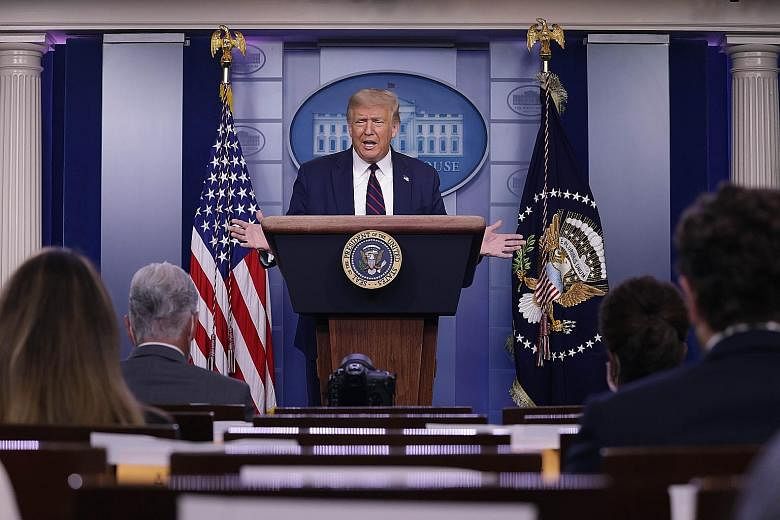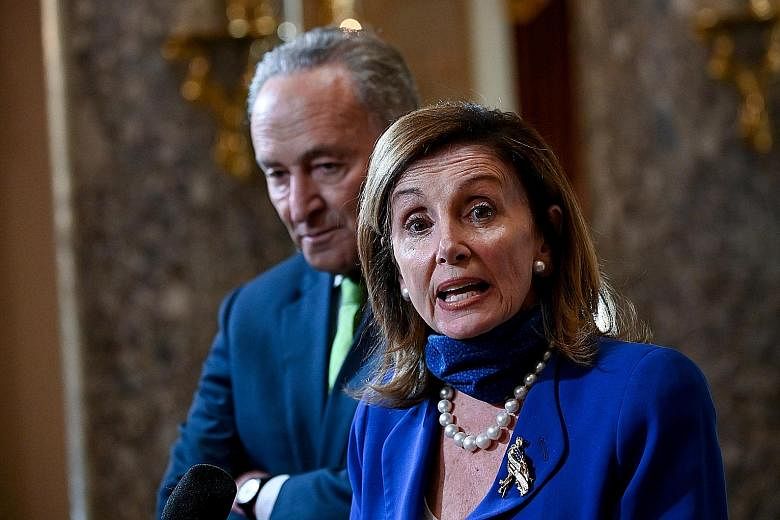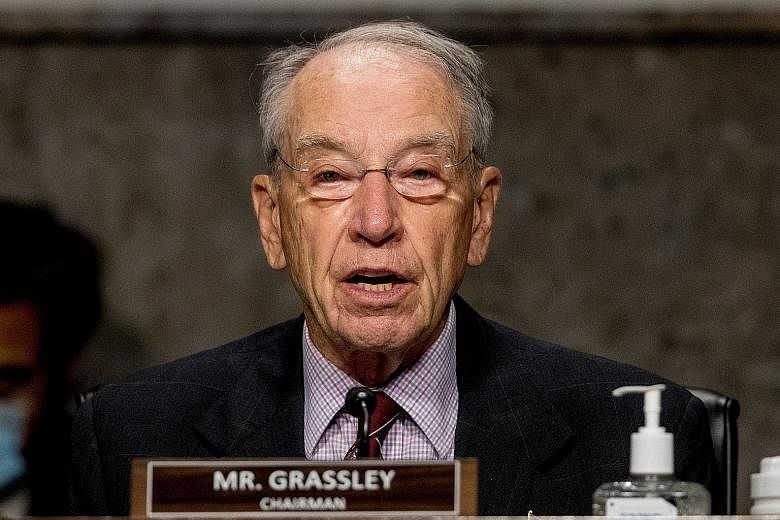WASHINGTON • US President Donald Trump has no power to change the date of the Nov 3 election by executive order, but Congress could change the date if it wanted to.
It just does not want to. But if it did, here is how it would work: The Constitution gives states the power to choose the "times, places and manner" of elections, but Congress can set national standards.
Since 1845, Congress has set election day as the first Tuesday after the first Monday in November. That date is a vestige of an agricultural economy when autumn harvests were completed and Tuesdays did not interfere with trips to the market.
Every once in a while, someone proposes a change. The Weekend Voting Act - sponsored by Senator Jack Reed of Rhode Island and Representative Louise Slaughter of New York, both Democrats - would have moved the election to the weekend after the first Friday in November. The Bill died in the last Congress without a vote.
It would be difficult to push the elections back much further without hitting legal and constitutional deadlines. States need time to complete their official counts and certify the results before appointing members of the Electoral College, called electors.
By law, the Electoral College meets on "the first Monday after the second Wednesday in December". This year, that day is Dec 14. If no election has been held, it would be up to state legislatures to decide how to cast their electoral votes and they could choose anyone.
The final step is for Congress to receive the Electoral College votes. That usually happens on Jan 6, but Congress has changed the date in the past.
If there is no clear winner by then, the House of Representatives chooses the president from among the top three candidates with electoral votes, with each state delegation getting one vote. The Senate chooses the vice-president.
Finally, there is one deadline that cannot be moved without a constitutional amendment. Inauguration day is Jan 20, 2021. Mr Trump's term ends at noon that day, whether there has been an election or not.
If no president or vice-president is chosen by then, the Speaker of the House becomes president. That is now Democrat Nancy Pelosi, but there will be an election for a new Speaker in January.
But if a catastrophe were to somehow prevent the election of new members of Congress, the president pro tem of the Senate would move to the White House.
That is Iowa Senator Chuck Grassley. He was re-elected to a six-year term in 2016 and would be the one person in the line of succession whose eligibility does not rely on an election held in 2020.
BLOOMBERG



